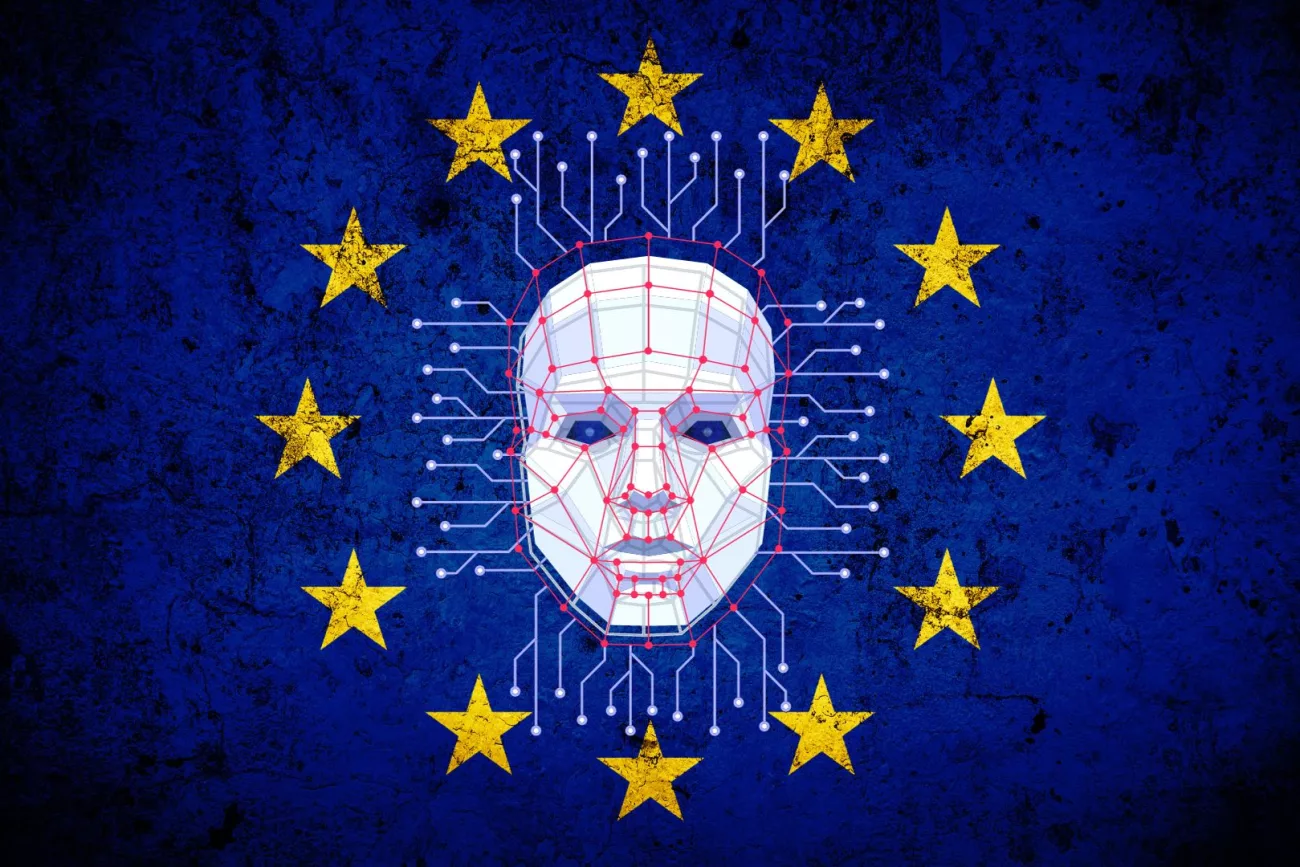
Key Points:
- AI is transitioning the lawyer’s role from data processor to strategist, streamlining tasks and presenting potential job market challenges.
- Legal education is in flux, with an increased emphasis on tech-augmented courses and a newfound importance of mentoring in the AI age.
- Traditional law firm structures are facing potential overhaul, with non-lawyers potentially owning firms and big tech potentially backing them.
- The infusion of AI into law presents a mix of promises and controversies, emphasizing the need for balanced evolution.
When Law Goes Sci-Fi: Are We Ready for the AI-Infused Attorney Age? 🚀
Welcome, legal buffs! Ever watched a legal drama and thought, “Ah, if only I had that gadget or AI sidekick!”? Your daydreams might not be too far off! And whether you’re thrilled or terrified, there’s no denying: The legal landscape is undergoing an AI evolution, and, spoiler alert!—it’s going to be contentious. 😲
1. Artificial Intelligence: From Fiction to Legal Fact 🤖
“The measure of intelligence is the ability to change.” – Albert Einstein
The above quote may very well define the legal industry’s evolution in the face of AI. No longer just a dreamy scene from a sci-fi movie, AI is here and revolutionizing the way law firms operate. Here’s how:
The AI Co-Pilot Era:
With technology’s incessant advancements, we’re saying goodbye to the days when lawyers would drown in paperwork, manually analyzing tons of data. With AI’s intervention, those daunting tasks that previously took weeks, or even months, now might be crunched down to mere minutes.
Real-World Case in Point: JP Morgan’s COIN software does in seconds what took legal aides 360,000 hours! This software reviews documents and extracts pertinent data—a testament to how AI can dramatically change legal work dynamics.
The Stat-Scoop:
Recent studies have come forth with staggering figures. According to a Deloitte Insight report, 70% of the tasks undertaken by lawyers can be enhanced or entirely automated with AI. Now, that doesn’t necessarily spell doom for attorneys but signals an era where lawyers might be more “strategists” and less “data processors.” Quite the AI-ttorney revolution, eh?
Two-fold Transformation:
It’s a dual dawning for the legal world:
Routine Task Enhancement: AI isn’t just about robots and complicated algorithms. For an attorney, it can mean smarter word processors that predict and formulate legal arguments or time-keeping systems that automatically log billable hours based on document activity.
Industry Trend: Tools like ROSS, which uses Watson, IBM’s cognitive computer, are enabling law firms to streamline research. They can ask ROSS their research question, and the software reads through the law, gathers evidence, draws inferences, and returns highly relevant, evidence-based answers.
Optimizing Legal Practices: On a broader scale, AI is being the game-changer for legal practices that routinely handle massive data. Contract review, discovery, and even legal document drafting can now be automated, allowing lawyers to focus on more complex tasks that require human intuition and critical thinking.
The Controversial Bit: While AI can drive efficiency and reduce costs, there’s an ongoing debate. Will this AI takeover eventually lead to a drastic reduction in junior legal positions, especially those that typically handle routine tasks? It’s a heated topic, with law firms on one side foreseeing an efficiency-driven future, while budding lawyers are on edge, pondering their place in this AI-augmented landscape.
For law firms willing to adapt, the AI-driven future holds promise: optimized operations, reduced costs, and sharper legal strategies. However, with great promise comes great controversy. Only time will tell if law firms can strike a balance between AI capabilities and human expertise, ensuring that both coexist in harmony.
2. AI’s Impact on Skills & Learning 🎓
“The skill to do comes from doing.” — Ralph Waldo Emerson
This profound quote might have a different shade of meaning in our AI-dominated legal landscape. Lawyers are bound to evolve with the times, and with the pervasive influence of AI, what clients value in their legal counsel is undergoing a seismic shift.
What Clients Expect:
Remember the times when being a lawyer was synonymous with mountains of paper, intense research, and scribbling notes? Fast forward to our digitized world: the scales of the legal arena are tilting. Clients are increasingly looking at lawyers as strategy magicians rather than mere information processors.
Reality Check: According to a 2019 Gartner report, by 2023, legal departments will increase their productivity by 40% through the use of AI-powered technologies. But here’s the twist — this doesn’t necessarily make the lawyer’s role redundant. Instead, it elevates the attorney to a higher pedestal of complex decision-making and strategy formulation. The question that now hangs in the balance is: If an AI can pen down the best legal arguments and cite case precedents in nanoseconds, what’s the real value-add of a lawyer?
The Evolution of Education:
Think about it: legal education has remained more or less static for the past century. Lecture halls, textbooks, moot courts… rinse and repeat. But as AI starts to take over mundane tasks, there’s an educational uproar in the offing.
Real-World Snapshot: Universities like Stanford and MIT are increasingly blending technology with traditional law modules. Students are now not just taught law, but also how AI tools can be utilized for legal research, contract analysis, and more.
However, this isn’t without its controversies. Critics argue that an over-reliance on AI tools might make newbie lawyers “tech-reliant” rather than “tech-augmented.” There’s a fine line between using technology to assist versus being entirely dependent on it. A lawyer who can’t function without AI is, to some purists, no lawyer at all.
Mentoring in the AI Age: 🦉 With AI summarizing cases and even suggesting strategies, the role of mentors becomes paramount. The focus might shift from technical proficiency to soft skills — communication, empathy, negotiation, and most importantly, ethical considerations in using AI. The mentor-mentee relationship would no longer just be about understanding the law but navigating its application in an AI-augmented world.
As we stand at the crossroads, legal firms and educational institutions have a monumental task: striking the right balance between technological advancements and the foundational principles of jurisprudence. The stakes? The very essence of the legal profession and its relevance in the digital age. 🔥
3. Shake-ups in Structure and Finance: 🏛
“Innovation distinguishes between a leader and a follower.” — Steve Jobs
If Jobs were to inspect the current structural fabric of law firms, would he label them as innovators or followers? One might argue that the legal sector, with its deep-rooted traditions, hasn’t been the quickest to adopt drastic structural and financial changes. However, that paradigm may be on the cusp of a revolution.
Law Firm Ownership 101:
Historically, the practice of law has been a walled garden — one that only lawyers could truly own. The protectionist stance is not without merit, preserving the integrity and independence of legal practice. But the winds of change, amplified by globalization and technological advancements, are challenging this sacrosanct tradition.
Case in Point: The landmark reforms in places like Arizona and Utah are indicative of these tremors. These states have begun dismantling Rule 5.4 of the American Bar Association’s Model Rules, which restricts non-lawyers from owning law firms. The international arena too is buzzing. Look no further than the UK and Australia, where alternative business structures allow non-lawyers to have a stake in the game.
The question becomes controversial yet unavoidable: Are we opening Pandora’s box, or is this the inevitable future?
The Public Company Model:
Imagine this: A world where law firms enjoy the same financial backing as top-tier Silicon Valley giants. It sounds straight out of a legal-thriller novel, doesn’t it? The pros — unprecedented financial power and the tech leverage to support unparalleled scale. The cons — potential loss of autonomy and ethical conundrums.
Statistical Dive: In 2021, the global legal tech market size was valued at $17.3 billion, according to Grand View Research. As this number balloons, so does the allure for big tech to get involved.
Would a Google-backed or Apple-affiliated law firm serve justice or corporate interests? This controversial topic is not just a hypothetical debate for law school classrooms but a genuine contemplation for the profession’s future.
Food for Thought:
If AI tools elevate a lawyer to achieve the output of an entire legal team, the implications are profound. We’re talking about the very essence of ‘economies of scale’ being redefined. Legal costs could plummet, making justice more accessible. Or, a handful of mega-firms might monopolize the scene, diminishing competition.
Quote to Ponder: “The future is already here — it’s just not evenly distributed.” — William Gibson
In essence, as we brace for these transformations, law firms, policymakers, and stakeholders must grapple with challenging questions. The choices made today will echo in the annals of legal history, for better or worse. 🔥🔍🏛
To Infinity and Beyond… Or Maybe Just the Next Boardroom 🌌
Lawyers of today face an exhilarating (and perhaps daunting) prospect. As AI becomes an integral assistant, the debate intensifies: Will AI be a tool, a colleague, or eventually a competitor?
Stay Ahead of the Curve! 🚀
Ready to dive deeper into the future of law? Eager to be part of the great AI debate? Don’t miss a beat—sign up for our stellar newsletter and get exclusive insights, news, and discussions delivered straight to your inbox.
Join the AI-legal Revolution. Subscribe to our newsletter. 💌
Every legal aficionado loves a good argument. So, what’s your stance? Dive in, debate, discuss! Let’s make the future of law thrilling, one AI algorithm at a time.
Share this post
Frequently Asked Questions (FAQs)
Q: How is AI affecting the traditional legal workflow?
A: AI is dramatically reducing manual data analysis, with tools such as JP Morgan’s COIN software, dramatically cutting time spent on document review.
Q: Will AI replace lawyers in the future?
A: While AI is automating mundane tasks, the lawyer’s role is elevating to more strategic, complex decision-making. The emphasis is on strategy and problem-solving rather than data processing.
Q: How is legal education adapting to AI's influence?
A: Institutions like Stanford are merging tech with traditional law courses. Students now learn AI tools for legal research and contract analysis, signaling a shift in legal education’s approach.
Q:Are non-lawyers starting to own law firms?
A: With reforms in places like Arizona and Utah, the traditional rule barring non-lawyers from owning law firms is being challenged, opening new structural possibilities.
Q:Could we see law firms backed by tech giants?
A: As the legal tech market grows, the potential for tech corporations like Google or Apple to back or affiliate with law firms raises ethical and autonomy concerns.














